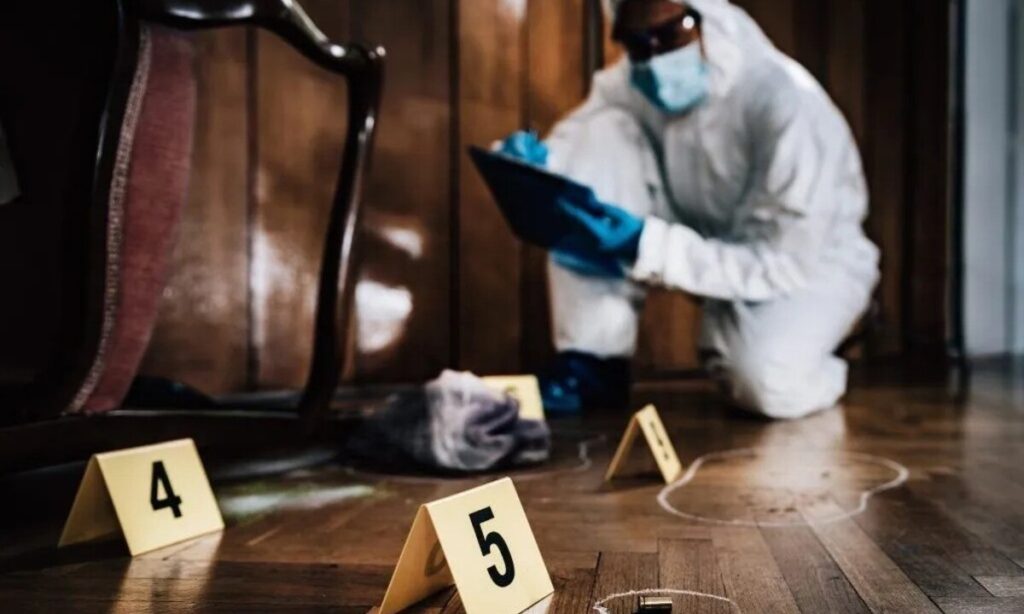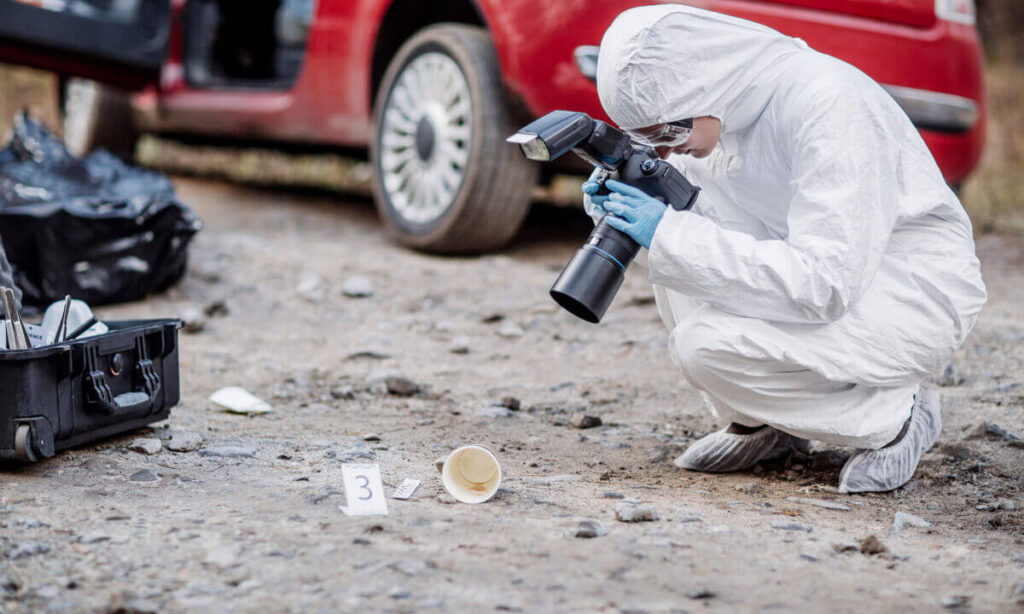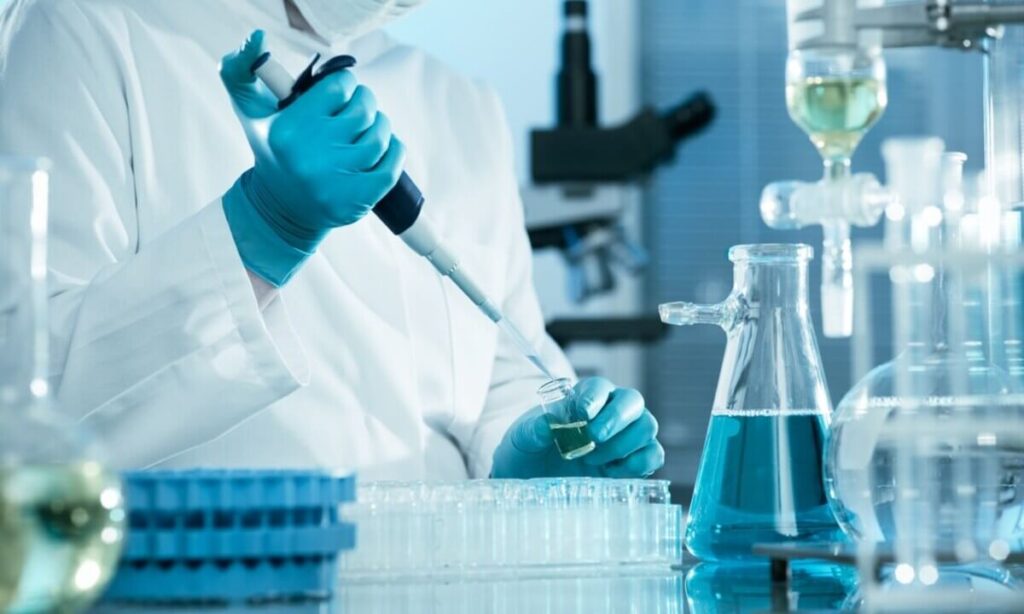DNA analysis is an exciting area of study that is essential to many branches of research and law enforcement. Examining and analyzing DNA samples to provide important information and proof for criminal investigations, paternity cases, and medical research will be your job as a DNA analyst. This in-depth manual will take you step-by-step through the process of becoming a DNA analyst, covering the daily duties of the position, the necessary skills for success, and the prospects for advancement in this fascinating area of work.
What is a DNA Analyst?
A highly qualified specialist in the examination and analysis of DNA samples is known as a DNA analyst. Working in labs, they extract, amplify, and analyze DNA from a variety of sources, including blood, hair, and saliva, using cutting-edge tools and methods. In order to identify people, determine family ties, and provide evidence in criminal cases, DNA analysts are essential. Their work demands strict adherence to protocols, an in-depth knowledge of forensic science and genetics, and meticulous attention to detail.
Steps to Becoming a DNA Analyst
1. Education
You must have a bachelor’s degree in biology, genetics, forensic science, or a similar discipline in order to work as a DNA analyst. Typically, the coursework covers topics like statistics, genetics, biochemistry, molecular biology, and forensic science. Selecting a program that provides practical laboratory experience and exposure to DNA analysis techniques is crucial.
You can choose to pursue a master’s or doctoral degree in forensic science or genetics after earning your bachelor’s degree. Advanced degrees can improve your knowledge and proficiency in DNA analysis and improve your employment prospects, though they are not always necessary.
2. Internship and training
To become a successful DNA analyst, one must complete training programs or internships where one can obtain real-world experience. Seek employment opportunities in government agencies, forensic labs, or research facilities that specialize in DNA analysis. You will gain invaluable practical experience in sample collection, DNA extraction, PCR amplification, and data analysis techniques from these internships.
Make an effort to hone your analytical abilities, attention to detail, and capacity for high-pressure work throughout your internship. Engage in simulated crime scene examinations and work alongside seasoned experts to acquire understanding of the practical obstacles encountered by DNA analysts.
3. License and certification
Many jurisdictions have different requirements, but in order to practice, DNA analysts must typically obtain a license or certification. Usually, this entails passing a competency test given by a professional association, like the American Board of Forensic Anthropology or the American Board of Criminalistics. These credentials attest to your proficiency in DNA analysis and your observance of industry norms.
Day-to-Day Responsibilities of a DNA Analyst
You will be responsible for a wide range of tasks as a DNA analyst, all of which center on analyzing DNA samples and producing precise and trustworthy results. A normal day might consist of:
- Receiving and logging in DNA samples for analysis, ensuring proper chain of custody.
- Extracting DNA from various biological samples using established protocols.
- Amplifying the DNA through techniques such as polymerase chain reaction (PCR).
- Analyzing the DNA profiles using techniques like capillary electrophoresis.
- Interpreting the obtained results and comparing them to known samples or databases.
- Preparing detailed reports summarizing the analysis and conclusions reached.
- Collaborating with law enforcement agencies, attorneys, and other professionals to provide expert testimony in court.
Skills Needed for a Successful Career as a DNA Analyst
A successful career in DNA analysis requires a blend of scientific knowledge, technical proficiency, and personal attributes. The following are some crucial abilities that will help you succeed in this field:
- Attention to Detail: To avoid contamination, guarantee accurate results, and preserve the integrity of the samples, DNA analysis necessitates exacting attention to detail.
- Analytical Thinking: To evaluate intricate DNA profiles and spot trends or abnormalities that could be significant to a case, you need to have excellent analytical abilities.
- Laboratory Techniques: A DNA analyst must be proficient in a number of laboratory procedures, such as DNA extraction, amplification, and analysis.
- Critical Thinking: DNA analysts frequently deal with complex cases that call for careful consideration in order to determine the best testing procedures and provide accurate results interpretation.
- Communication Skills: Since this position requires you to present your findings in written reports and give expert testimony in court, effective communication is essential.
- Ethical Conduct: DNA analysts are required to follow stringent ethical guidelines, making sure they handle evidence and protect confidentiality in an impartial and professional manner.
Career Outlook and Salary for DNA Analysts
In the upcoming years, there will likely be a considerable increase in demand for DNA analysts. Professionals with expertise in this field are in greater demand due to technological advancements and the growing use of DNA evidence in criminal investigations. The median yearly salary for forensic science technicians, which includes DNA analysts, was $63,740 in May 2022, according to the Bureau of Labor Statistics. Salaries, however, can differ based on a number of variables, including employer, experience level, and location.
Tools and Technologies Used in DNA Analysis
To complete their work quickly and precisely, DNA analysts use a variety of advanced instruments and technologies. Among the frequently utilized tools are:
- Thermal cyclers: These devices produce multiple copies of DNA segments for analysis by amplifying DNA through PCR.
- Capillary electrophoresis systems: These systems allow the analysis of DNA profiles by separating DNA fragments according to their size and charge.
- Automated DNA extraction systems: By automating the process of removing DNA from a variety of biological materials, these devices increase productivity and lower the chance of contamination.
- Genetic analyzers: These devices produce electropherograms, analyze DNA profiles, and offer insightful information for interpretation.
Continuing Education and Professional Development for DNA Analysts
It is crucial to take advantage of continuing education opportunities if you want to advance your professional development and stay up to date in the field of DNA analysis. Attend seminars, workshops, and conferences that highlight new developments in DNA analysis methods, cutting-edge technology, and the legal applications of forensic science. Joining associations like the American Academy of Forensic Sciences or the International Society for Forensic Genetics can also be a good idea because they offer access to the most recent findings in the field as well as useful resources and networking opportunities.
FAQs
Where do DNA analysts work?
DNA analysts can work in various settings, including government laboratories, law enforcement agencies, private forensic laboratories, research institutions, and universities.
What is the difference between a forensic scientist and a DNA analyst?
While the terms “forensic scientist” and “DNA analyst” are often used interchangeably, a forensic scientist is a broader term that encompasses various disciplines within forensic science, including DNA analysis. DNA analysts specialize in the analysis of DNA evidence and play a crucial role in criminal investigations.
What are the names for DNA analysts?
DNA analysts are also known as forensic DNA analysts, DNA technicians, DNA specialists, or molecular biologists specializing in DNA analysis.
What are the disadvantages of being a forensic DNA analyst?
Being a forensic DNA analyst can be mentally and emotionally challenging, as the work often involves analyzing evidence from violent crimes. Additionally, the work can be detail-oriented and repetitive, requiring a high level of concentration.
Who is the most famous DNA analyst?
While there are several well-known DNA analysts in the field, Dr. Mary-Claire King is widely recognized for her groundbreaking work in DNA analysis and the discovery of the BRCA1 gene linked to breast cancer. Her contributions have had a significant impact on the field of genetics and forensic DNA analysis.
Conclusion
It takes commitment, a solid educational background, and a love of forensic science to become a DNA analyst. You can start a fulfilling career in this exciting field by following the suggested steps, gaining real-world experience, and honing your skills. Never forget to keep an eye out for chances for professional development and keep abreast of the most recent developments in DNA analysis. You will be essential to the fight for justice and the expansion of science as a DNA analyst.
Did you find this article helpful? Check out this article on How to Become a Fingerprint Analyst: Complete Guide. For more articles, check out our website. Thank you for reading!






